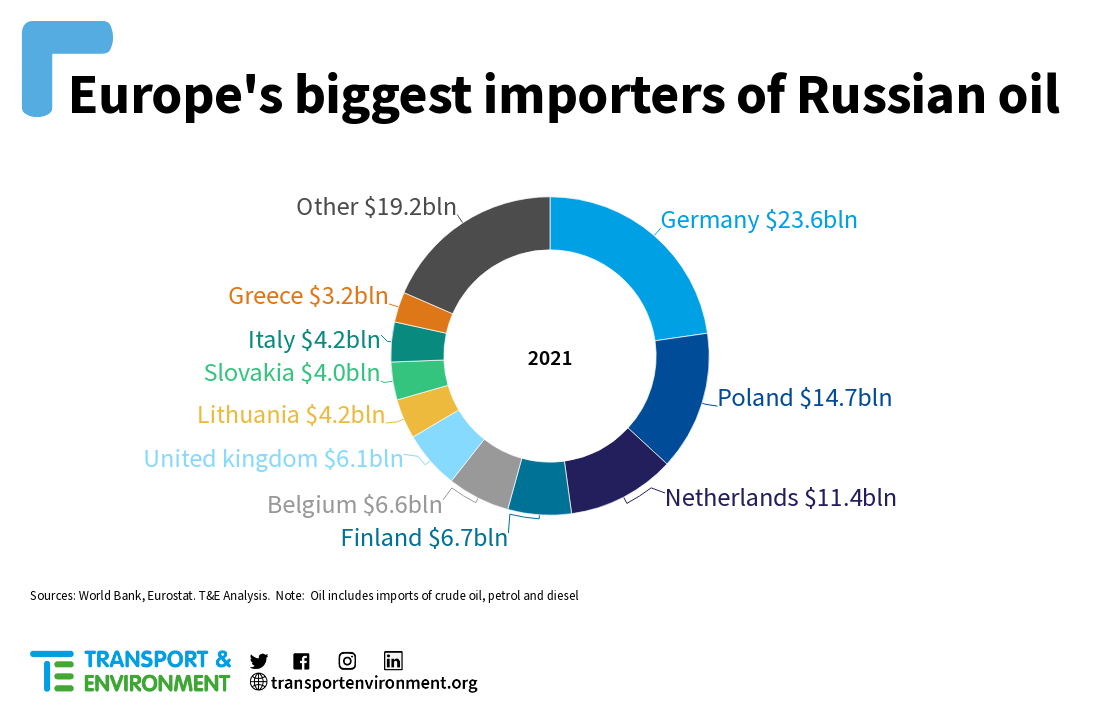Also available in French, German and Spanish
Europe is giving Putin $285 million a day to meet its dependence on imported oil, new data[1] shows. Transport & Environment (T&E), which carried out the study, calls for Europe to join a global embargo of Russian oil to stop funding Putin’s war in Ukraine. The analysis estimates that Russia received $104 billion from oil exports to Europe and the UK last year, dwarfing its gas revenues ($43.4 billion).

William Todts, executive director of T&E, said: “Europe is sending over a quarter of a billion to Putin every day, even as he wages war in its own backyard. This has to end. But we should not simply swap Russian oil for Saudi oil. It’s time to greatly improve transport efficiency and turbocharge the electrification of transport to drive down our oil consumption.”
Europe is dependent on Russian oil for over a quarter of its crude oil. While some European countries like Slovakia are dependent on Russia for over 90% of their oil, the continent’s dependence as a whole, while significant, is not insurmountable, the analysis shows.
Unlike gas, most oil imports into the bloc are via oil tankers and ports. Between just 4% and 8% of Europe’s oil supplies come via Russian pipelines – up to 30% of total Russian oil exports to Europe – meaning sourcing oil elsewhere in the short term is feasible.

However, this does not solve Europe’s long-term dependence on oil, warns T&E. The EU’s new energy security strategy, to be launched on Wednesday, seeks to insulate Europe against the risk of energy supply disruption and rising prices, particularly for those countries that rely heavily on Russian gas. At a time when the United States government is discussing an oil embargo, the EU’s failure to even mention oil in a draft strategy, seen by T&E, calls into question the bloc’s determination to end the invasion of Ukraine.
Global oil prices have doubled since April 2021, hitting $120 a barrel (for Brent crude), putting pressure on European households. T&E recommends that the strategy includes measures to prepare for oil market disruption including more home working and car free days, as well as redirecting recovery package funds to support the mass market availability of electric vehicles.
William Todts concluded: “The EU must rewrite its energy security strategy to include oil. Gas is understandably a worry, but it is oil that is funding Putin’s war. Relying on it leaves Europeans dangerously exposed to rising prices in an increasingly uncertain world. Any energy security strategy that ignores oil isn’t worth the paper it is written on.”
Note to editors:
[1] Prices for 2021 are estimated based on the World Bank average price for last year and oil import volumes for 2019 (Eurostat) before the pandemic, which saw a once-off drop in demand.


